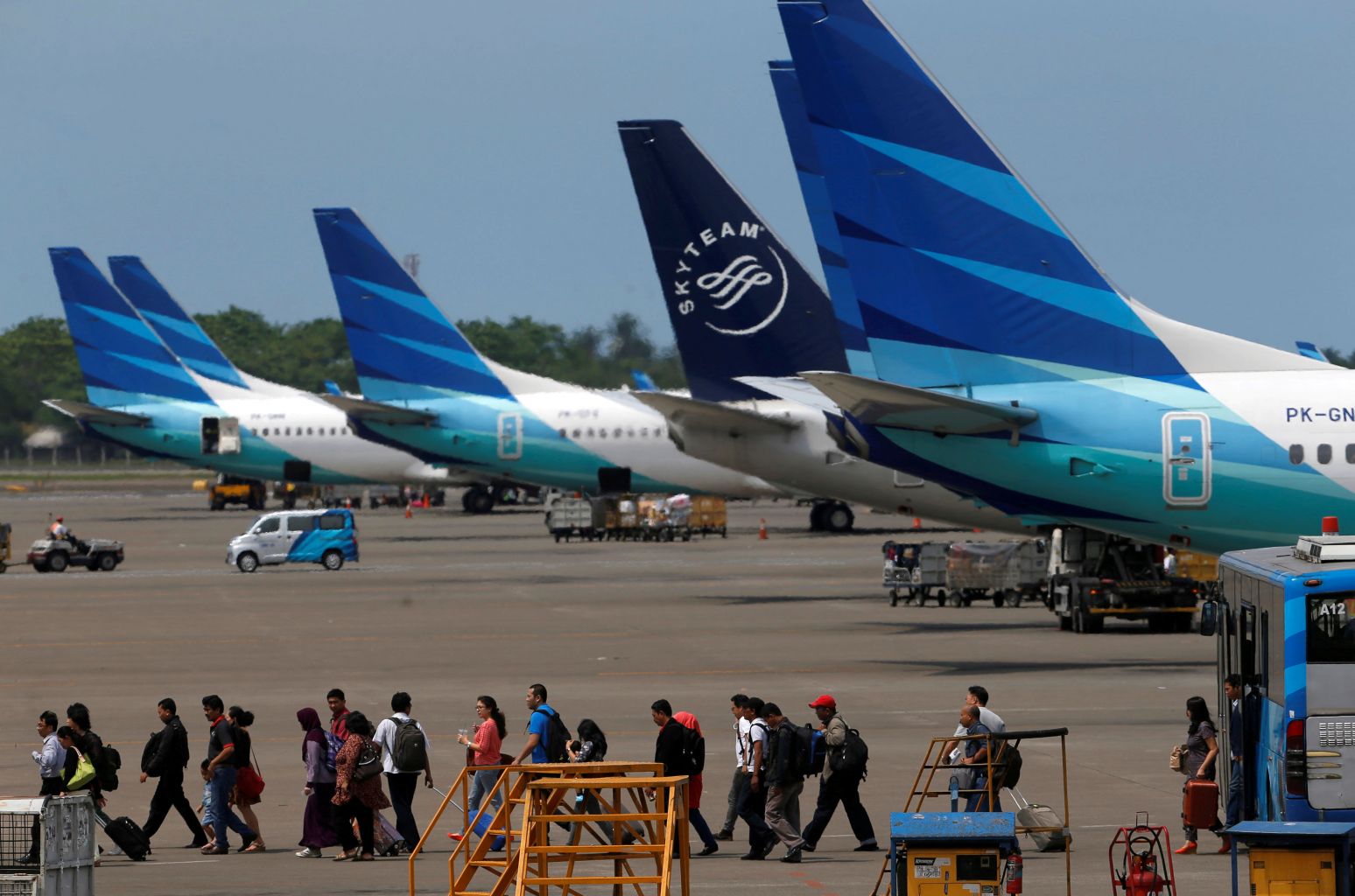Indonesia's govt cracks down on pilot schools to boost air safety
Sign up now: Get insights on Asia's fast-moving developments

Soekarno-Hatta airport in Jakarta.
PHOTO: REUTERS
JAKARTA - Indonesia's government is cracking down on poor-quality flying schools as part of efforts to address the lack of competency among newly graduated pilots - a crucial factor in boosting the country's air safety record, The Jakarta Post reported.
The Transportation Ministry said it has found eight schools - out of 18 currently in business - that cannot meet the basic requirements of operation as outlined in a newly passed ministerial decree. These requirements included the ownership of at least five aircraft, including one multi-engine aircraft for student training.
Of these, it has closed down two schools, while giving time for the rest to comply with the new rules until Feb 8. Failure to do so will result in similar closures.
"I urge the schools to merge so that their aircraft fleets can be combined and they can also provide better education and yield better output," Transportation Minister Budi Karya Sumadi said on Wednesday (Jan 24).
Poor skills, coupled with lower demand for pilots in recent years, has left about 600 pilots unemployed, according to an estimate.
To cope with the current problem, the ministry has held courses for 330 unemployed pilots who lack basic aviation knowledge, such as aviation law, flight performance and navigation.
Budi also requested airlines to offer a number of these pilots internship programs to increase their chances of employment. He also warned that because of concerns over the quality of the graduates, it would be harder to establish new pilot schools.
Indonesia, one of the world's fastest-expanding commercial aviation markets, has been struggling to improve its safety record despite achieving a better position in the latest International Civil Aviation Organisation assessment on the implementation of safety regulations.
The European Union banned all Indonesia-based carriers from flying in the bloc's airspace in 2007 following a series of accidents. So far, it has only lifted the prohibition on specific airlines.
Airlines in Indonesia say they, too, have encountered problems finding qualified pilots.
Daniel Putut, the managing director of Indonesia's largest low-cost carrier Lion Air, recalled that when his firm sought 150 pilots in December, only two candidates were qualified and passed all the tests. "We encourage future pilots to be well-prepared," he said.
Fellow low-cost airline Citilink said it also struggled to find competent pilots to match its requirements. Currently, most candidates cannot pass written tests, its president director Juliandra Nurtjahjo said.
"A number of them have also failed (flight) simulator tests as they require a lot of practice," he said, adding that despite such high a failure rate, the airline would not lower standards as it prioritised aviation safety.
The CEO of privately run Perkasa Flying School, Septo Sudiro, said he understood the government's concerns, and has tried to address them by applying higher prerequisites for pilot schools to cope with airlines' demands.
He said the fall in demand for pilots - from 600 in 2015 to only 300 in 2017 -was a result of the lower number of aircraft coming in to the country.
"I think demand will pick up again in 2018 and 2019," Septo said.
But aviation expert Gerry Soejatman said there was no easy answer to the pilot-education issue.
"Why are all the problems blamed on the schools? The standards are set by the government. If there is a gap between the standards and what airlines demand, it's hardly their fault," he said.


